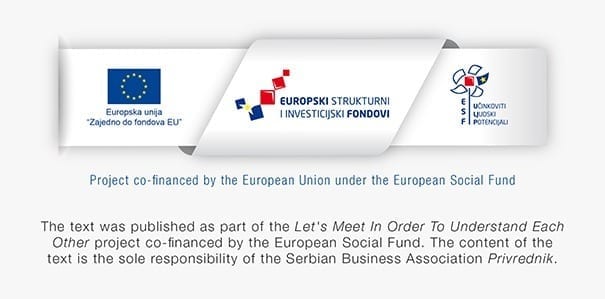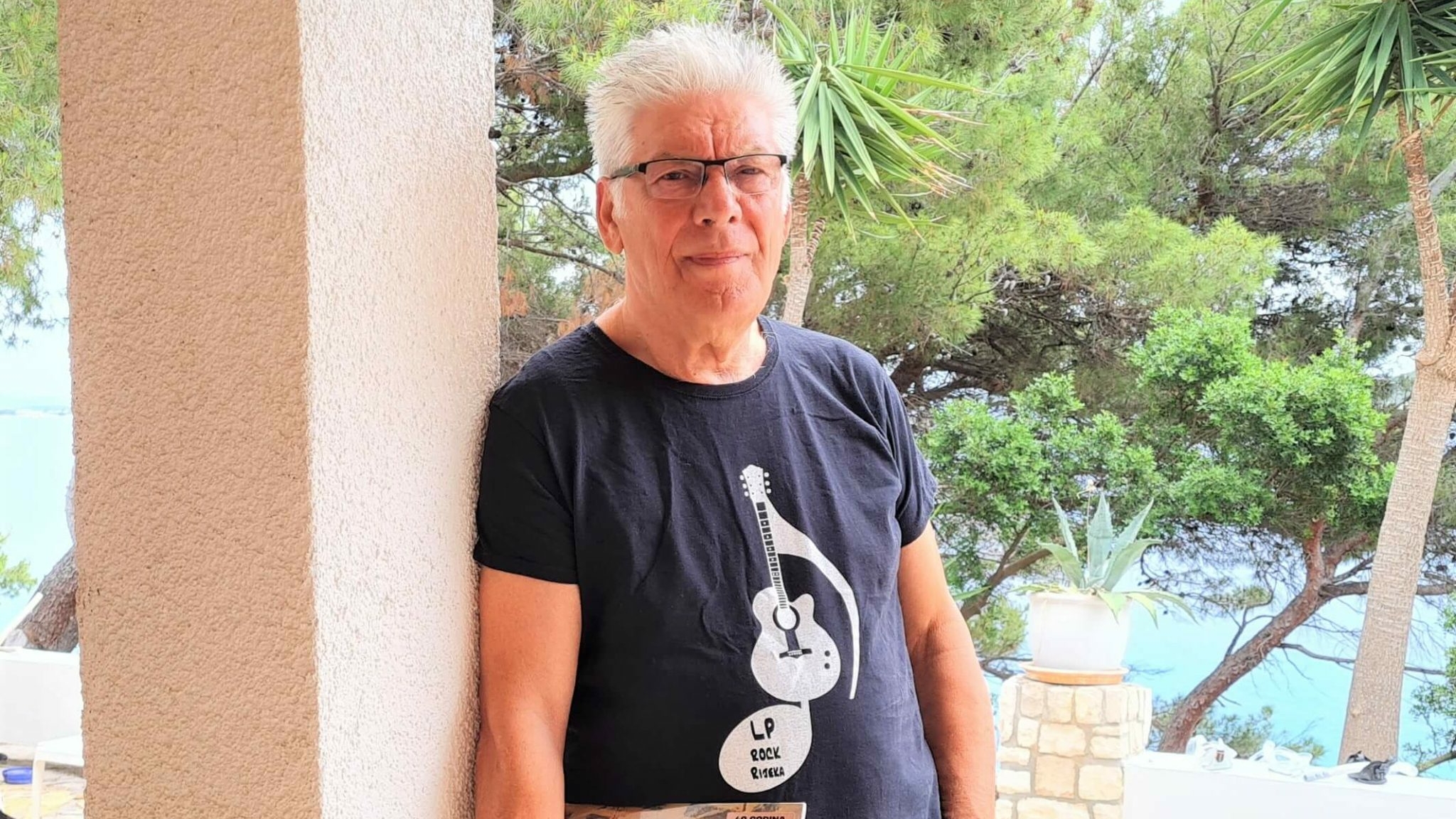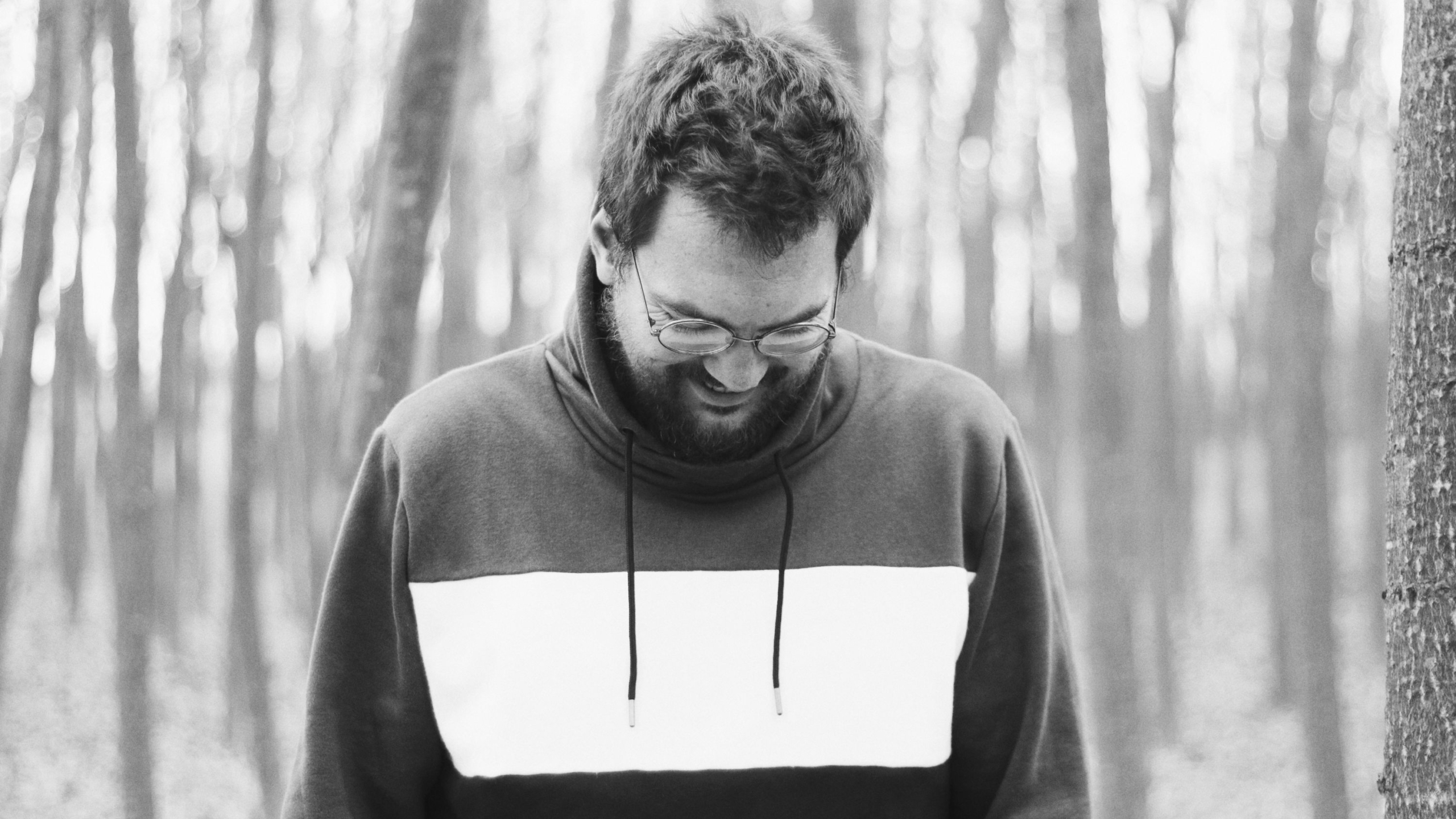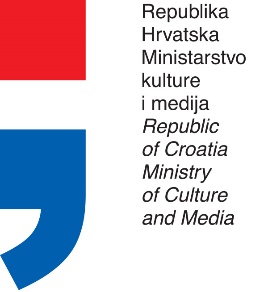Exactly 40 years ago, in 1982 (on the Good Friday, legend has it), the album Odbrana i poslednji dani (The Defense and the Last Days) by Idoli came out. It is the record that has been ranked first on almost all the lists of best Yugoslav rock albums since then. It is an album that still astounds with its lyrical and musical boldness, willingness to explore and unusualness within the domestic musical scene of the time. Many have discussed, debated, written about and even reached a kind of consensus on this album, which continues to shine with something darkly mysterious that is not mystification but still leaves a mystical trace after listening to its unusual, enstranged songs, lyrics and music. It is an “open-ended” record, a kind of a “rock and roll Ulysses” or Sgt. Pepper, where each new generation and each new listen produce new readings. It was published by the Zagreb record label Jugoton; the editor was Siniša Škarica, undoubtedly the greatest musical editor and, as the Americans would say, “talent scout” in the history of Yugoslav discography. Barely a few days later than the date of release 40 years ago, Croatia Records, Jugoton’s successor “on a reduced area”, released a remastered version of Odbrana i poslednji dani with accompanying lyrics and other material. That is another reason to talk to Siniša Škarica, a man of uncommonly disciplined memory and tremendous energy, which “switches on” during any conversation about his past work and music in general and seemingly cannot run out. In a time of all kinds of mystifications, distortions and additions, his insider’s look at the history and the context of the creation of this major album of our music and culture has an authentic, almost documentary value; it is a testimony invaluable in today’s world.
It is the fall of 1981. As their editor in Jugoton, you, of course, know that Idoli are recording an album in Belgrade, and an album a lot is expected from. After how long did you arrive there from Zagreb to check what was going on?
A year before the record was made, I was present in the same large, main Studio 6 of Radio Television Belgrade for almost three months during the recording of Bijelo Dugme’s Doživjeti stotu. We all bonded very much then because Paket aranžman was being recorded simultaneously with that. Bregović met Idoli when they were recording in the Druga Maca Studio with Enco Lesić. He had heard their music before; we talked about it during recording sessions in Studio 6, and Pera Luković had already given him their first single “Retko te viđam sa devojkama” before. Bregović was very interested in Idoli and said that he would produce their music if Jugoton signed them on. I told him that “Maljčiki” would definitely be the first single – that song stood out from the beginning – and he produced it in Jadran Film in Zagreb. A year later, Idoli asked for practically the same studio conditions that Bregović and Bijelo Dugme had had. They wanted Joca Višković to be the sound engineer and lead and oversee the recording because he had overseen Doživjeti stotu, although Rade Ercegovac worked on that as well as the sound technician. They wanted Mile “Pile” Miletić as the second technician and chose Radio Belgrade’s Studio 6 and Studio 13 to record in. They started recording in November 1981; I was at those sessions maybe twice. I saw that they were struggling, that those recording sessions were a real struggle.
What exactly did you hear; what did they play for you?
Something neither they nor anyone else was satisfied with. I saw that it would be a difficult process whenever I met them. But they had carte blanche: “You’re making a new record? OK. Do it, you’ve earned it; you made a great mini album, and I believe in you. You’ve got potential.” That first mini album they made with Film sold over 100,000 copies – so, they earned our trust. In recording Odbrana, however, they recorded and deleted over and over again. And that is the real truth about this record. When they finished recording it in February 1982, I was not surprised it was both a good and very difficult record, musically different from anything they did with producer Piko Stančić at Radio Zagreb when they made the mini-LP. It was clear to me that Odbrana would not sell a lot of copies, but I also realized that, in postulating this “something” that was supposed to be different, in the end, they did actually make something completely new. They succeeded in that. Šaper probably influenced the record “ideologically” the most. He was into philosophy and theosophy and contemplated God and religion. But when it comes to the instrumental side and the players – Vlado Divljan and Zdenko Kolar – the only thing that really worked was Divljan’s musicality and authorial strength. If you take those few songs that were his – “Nebeska tema,” “Poslednji dani” and “Rusija” – and imagine them on a mini-LP, you’ll see that they work. And Odbrana wouldn’t be what it is without them. This diversity is the basis of its strength that crystalized much later. I looked through the archives a little while ago: in those days, ROCK magazine used to make yearly lists of the five best albums according to critics. In the poll in 1983 that looked back on 1982, of the 29 important polled critics, only Dražen Vrdoljak did not respond, and all the others, from Peca Popović to Darko Glavan, did. Of the 29 responses, most ranked Azra’s Filigranski pločnici first. Idoli were second on the list but with a difference of 40 votes, and 16 critics did not rank Odbrana among the first five! The power, the multiple layers of Odbrana i poslednji dani and the aura and epithet of “the best album,” conferred by critics and, finally, the audiences, were only realized with time and the patina it brings.
And you?
I haven’t changed my opinion. I am not surprised that record is so well-regarded. I am more surprised that Ravno do dna (a triple album by the band Azra recorded at concerts in the Zagreb club Kulušić in the fall of 1981) was voted best by Večernji list readers, ahead of Sunčana strana ulice and Josipa Lisac’s Dnevnik jedne ljubavi. Although it’s a live album, it’s a record dearer to me.
OK, that’s from today’s perspective. But back then in the studio, while Odbrana was being recorded, what did it look like? How did Idoli act as a band? What were the relationships like? They didn’t even have a producer on the album.
They didn’t. They hired various people – Goran Vejvoda, Mile Miletić, who also played some guitar. They had technical leadership. But they can’t play for them. They, Idoli, weren’t players. It was a reduction. I have a philosophy: take, for example, Lišće prekriva Lisabon by Električni Orgazam. Why is that record so experimentally excellent and perhaps their best work, so unusual, different and even confessional when it comes Gile? When you lack the kind of playing skill that you have when Dado Topić, Josip Boček, Vedran Božić and Ratko Divjak enter your studio – then there’s no problem. You have an idea how the song goes; you sing, they play, and that’s it. And they (New Wave musicians) had to patch up their holes somehow. And they are intelligent and have the knowledge. They wanted to make something different and special and succeeded in the end. But they struggled a lot. Over 400 hours. They worked for two or three months in two studios until they finally brought me the material, and I was happy it was finished.
You listened to the album for the first time in the spring of 1982. The first song is “Kenozoik” – alright, that is acceptable enough. But then the songs become more and more difficult and the themes and music more complex. And then comes the major moment – the song “Moja si.” How did you react when you heard that radical, confusing, difficult, even frightening song, which ends in Šaper’s voice singing an Orthodox church hymn?
No, no, I wasn’t bothered or surprised by it. We had already had these shocks at Jugoton, with “Christ was a bastard and a wretch” (the notorious line from Bregović’s song “Sve će to, o mila moja, prekriti snijegovi, ruzmarin i šaš,” from Bijelo Dugme’s 1979 album Bitanga i princeza). Idoli’s line “Jesus is our May” was not changed and remained in the song.
And the song “Glavna ptica” and the line “The Marshal is my god”? That couldn’t stay, and they changed the lyrics.
They changed that of their own accord. You are right; it was a kind of self-censorship. It was bad, but we were used to it. We were raised that way. But everything else was fine. Now they mention the Cyrillic letters on the cover. I learned the Cyrillic at the same time as the Latin script; it’s not the same as for today’s generations. It was completely normal to me.
So, they bring you a proposal for the cover: a fragment of a medieval fresco over which the album title is written in Miroslav Cyrillic font. What is your reaction?
I thought it suited the material of the album. Uncommercial but – let’s do it! That’s it; we are doing it. It would have been nicer with their faces from the inside jacket, from the color photos by Goranka Matić. But this was chosen, and it was OK. That’s the way they envisaged it. A somewhat hermetic album, like they wanted it. They flirted a little with religion, with Orthodoxy there…
Do you remember your reaction when, at the end of “Moja si,” as difficult as it is, you heard Šaper singing „spasi nas, utešitelju blagi, pojuščija ti, Aliluja…“? Were you scared? Krstić says you “froze.”
I didn’t, I didn’t (laughter). Seriously. You can feel that through that record. Some later said that “moja si” could in fact be “monasi” [“monks”]. That is speculation, like all that about transgenderism and androgyny (the lyrics: “You’re mine, you’re mine; she watches herself dress. He would like to be that girl; he would like his friends to love him, to try to change himself.”). Such records, like books, leave, of course, room for different interpretations.
Did they bring you “Glavna ptica” with the line “The Marshal is my god” or the altered version?
They brought the original version.
And you told them: “Boys, this can’t stay…”?
No, no, I never talked like that. I think I told them: “What are we going to do with this? Are you, are we, going to keep it?” Remember that Štulić had Filigranski pločnici at that time and the song “Tko to tamo pjeva”: “Armored ships carried you to all four corners of the world…” Of course, everyone knew who he was alluding to.
He also censored himself, changing a line from “and nonaligned, cousin” to “and generous, cousin” for the album.
He did that himself. Just like for the song “Kurvini sinovi”: he sang “Russians are coming” at every concert but changed that on the record. I didn’t even know; I saw and heard those recordings from concerts later. Similarly, Idoli said, “Yeah, fine, it isn’t important.”
You mentioned Šaper and his interest in philosophy and theosophy. Did you two talk about ideas then, or did you find about that later?
I found out later. I wasn’t aware of that, nor did we talk about it in that way. Of course, we at Jugoton knew there was an Orthodox chant there. Anyone who is a little into music or is religious will hear it. I’m not religious, but I was familiar with it – I had heard Orthodox church singing a million times. Besides, only four years earlier, in 1978, Jugoton published the famous Divine Liturgy of St. John Chrysostom by Stevan Mokranjac, performed by the Ivan Goran Kovačić Academic Choir, directed by the great Vladimir Kranjčević and with the great Vladimir Ruždjak as the solo baritone.
With this record, something became visible within the band – a division between Vlada Divljan on the one side and Šaper and Krstić on the other. Did you sense any of it then?
No. I didn’t sense it then. I didn’t sense it even when they did Čokolada and tried to go back to that camp expression that they amply used on the mini album.
When Odbrana finally came out, you were sure it wouldn’t sell?
Yes, but in the end, it actually sold quite well – some 30,000 or 40,000 copies, close to being certified gold, which required 50,000 copies sold at the time. For a band that had sold 100,000 or close to 200,000 copies, albeit together with Film (the cassette album had Idoli’s mini album on one side and Film’s Live… u Kulušiću on the other), and later sold almost 300,000 copies of Čokolada, you could say it was not a success. On the other hand, the band Animatori released their first album – a light, authorial pop record – a year later and sold fewer than 30,000 copies, and Idoli’s record was much more hermetic.
Did anyone at Jugoton have objections to you publishing the album?
No, they didn’t. We had more problems with Štulić’s directness. His live album Ravno do dna contained such lyrics that we had to put those disclaimers on the jacket to distance ourselves from them. Idoli had that misty esotery, and no one noticed anything controversial. And in those days, Cyrillic letters weren’t a problem like today, when it apparently seems very provocative.
I am not saying the Cyrillic script was provocative – it was, after all, taught in schools. I mean something else. It was 1982, when Dinamo was the champion of Yugoslavia, Cibona appeared and there was an awakening of a different kind of identity in Zagreb and Croatia.
I understand what you’re trying to say. But the church singing and everything connected with religion, with Orthodoxy, on Idoli’s album didn’t bother me, and no reactions concerning it reached us from the public. Maybe people did react to it in their homes. We don’t know what was in people’s heads. We are still surprised when we hear some people’s reactions today and wonder where they were when the album came out. That’s just the way it goes. People perhaps had opinions about it but didn’t express them publicly, not even the critics who wrote about Odbrana. In that sense, it may have seemed that Idoli wanted to make something different and provocative at any cost but didn’t really succeed in it. That’s the way it looked. But now, looking back on it from this distance, it seems that they did succeed. The album still has an impact on listeners, and people’s comments on it are largely positive but very diverse. Everyone has their own idea about what Idoli wanted to achieve with the album – therefore, it seems that Idoli achieved their aim, although they didn’t really have a clear aim in sight. They probably thought, “Let’s do it and see what we get.” There weren’t any particular conflicts during the recording. As I said, we had more problems with Bijelo Dugme’s Bitanga i princeza and Azra, when the director of Jugoton Mirko Bošnjak and I had to figure out how not to provoke strong reactions. The only time we were summoned to the municipal court was because of Azra’s song “Pukovnik i pokojnik” [“The Colonel and the Deceased”] from the album Krivo srastanje. Some retired military officer reported us. Probably a colonel.
Idoli’s lyrics weren’t so direct and obvious, like those of Prljavo Kazalište or Johnny Štulić. He later also wrote more cryptically. Idoli’s cryptic style did not provoke reactions. Maybe they thought it would and would therefore be more commercial, but it simply wasn’t.
This will also be read by much younger readers. We need to put things into context. The band and the critics agree that this album could not have been released by PGP RTB or in Belgrade at all. It had to be in Jugoton, in Zagreb, and not in Belgrade.
Look, that is so funny. I was just reading an interview with Slaven Bilić, where he says that “we in Croatia couldn’t say what the Serbs said.” He is talking about the footballers in the national team, where everyone was mixed. I laughed at that, but on the other hand, perhaps you are right. Similarly, they probably said in Belgrade: “We can’t release it, but the Croats could.” Just as they might release some Catholic performer. But that isn’t true either because at one point we released a record with religious songs by Glas Koncila, Arsen Dedić and the group Žeteoci. We released that record as a favor (the album To nije tajna by the Catholic pop group VIS Žeteoci – the first record of spiritual music in the pop style in Yugoslavia – author’s comment). Someone from “higher up” needed it, Savka or someone else…
That was a different era. I am talking about that moment in 1982, two years after Tito’s death, a little before Ranković died and so on…
You think that PGB RTB would never have published it, and only we could? Maybe, but for a different reason: we were the only ones who published it all, the whole scene, except for Riblja Čorba, who later also came to Jugoton for a while and recorded one album. The fact is we had everything: the whole New Wave, Oliver Mandić, Zana, Laboratorija Zvuka, the Belgrade and Novi Sad scene… So it wasn’t even a question. Everyone fared the same way. When the people at PGP recorded Šarlo Akrobata and heard how avantgarde it sounded, they rejected them, and Šarlo Akrobata called me then. I was in the middle of a meeting when Koja called me and told me that PGP said they weren’t interested in their music. He asked me if we would buy it; we only had to pay the recording fee for Studio 5. I told them: “Of course we will buy it. You could have come to us straight away; you didn’t need to go to PGP at all.” They are the only band of the three bands from Paket aranžman that decided to record for PGP. Everyone, therefore, gravitated toward Jugoton. Belgrade critics even wrote: “We are lucky Jugoton exists.” It was the same with Odbrana. It had nothing to do with the subject, which was “domestic” there, so we “from across” would publish it more easily.
In short, back in those days, you never thought that this record would be talked about 40 years later?
That’s for sure. But that is also due to my personal taste. It is an important record, a really great record, but I could name ten records that I like more and are, in my opinion, more important. I would even put their mini album from 1981 on that list if it didn’t lack a few things because, for me, it is truer to them than what they did on Odbrana. The mini album was a product of spontaneity, and Odbrana was constructed. I know how it was made.
Translation from Croatian: Jelena Šimpraga









